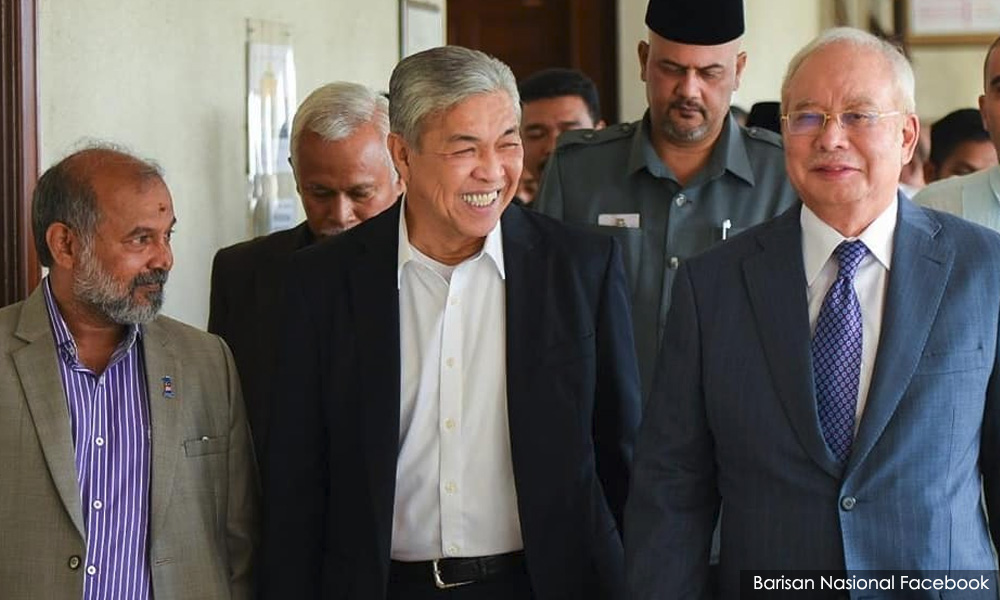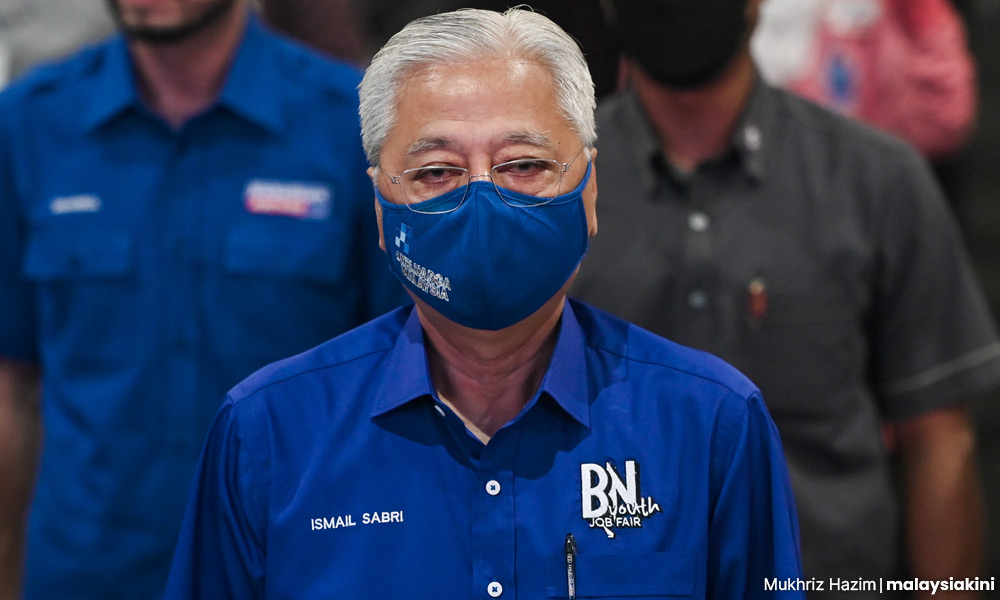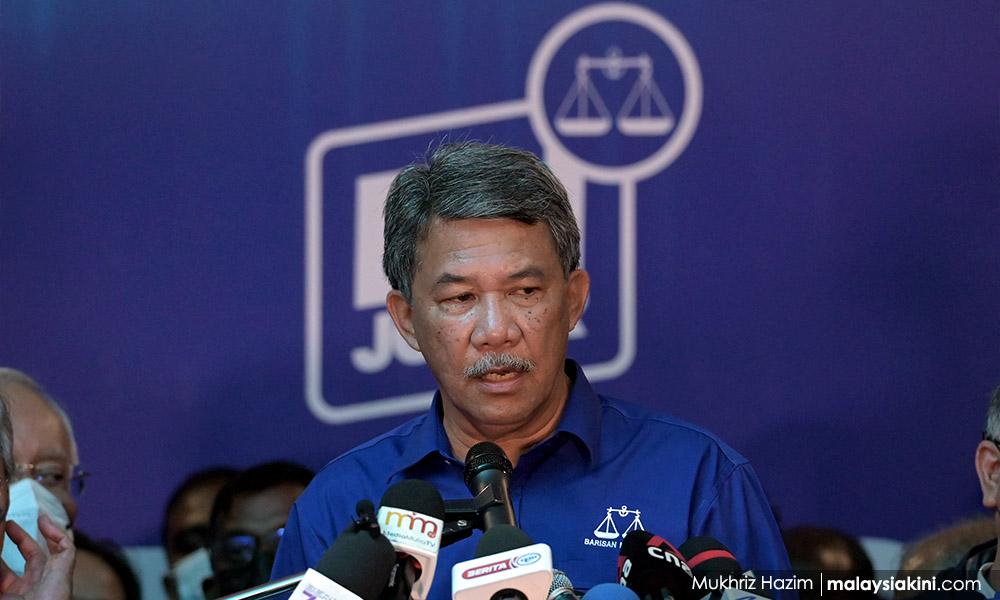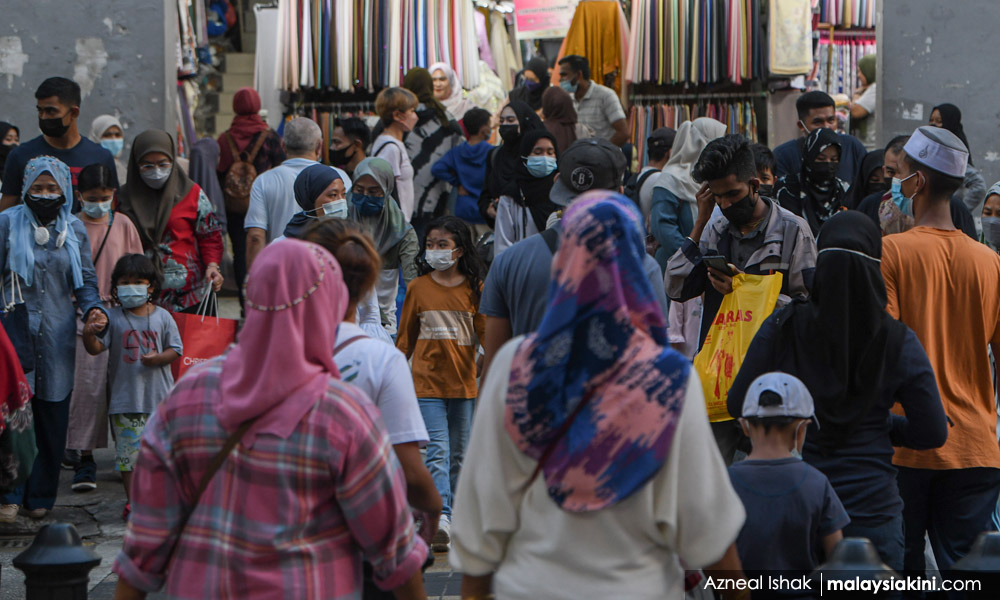Two questions need to be answered if we are to examine how Umno will do in the next elections - first, who will lead the party into elections and second who will be the prime minister-designate if Umno wins.
If Umno stands divided in these two areas, it will cost them heavily in the polls. The glaring differences between key leaders will considerably undermine the poor confidence that people already have in Umno and perhaps even destroy it.
In the first part of this article, we explained the posturing within Umno in the light of new revelations and how the party is divided from within. In this second part, we discuss some possible permutations that will shape Umno’s future.
Before we look at who is likely to be Umno’s prime minister-designate at the 15th general election (GE15), we need to know the outcome of a crucial decision to be made on July 16 - that of whether the Registrar of Societies, or ROS, will allow the postponement of Umno’s election.
The registrar told Bernama that the ROS will make a decision on whether Umno polls can be postponed under Umno’s constitution amended in May, by July 16. If the registrar does not agree, then Umno’s polls must be held before and not after GE15. And it must be held by Dec 30 this year.
A decision against the amendment will give prime minister Ismail Sabri Yaakob a perfect excuse to defend postponing elections to next year, at least to see who will be the leaders to take the party into the next elections.
Also, by the end of December, both Umno president Ahmad Zahid Hamidi’s trial on multiple corruption charges and former PM and Umno president Najib Abdul Razak’s appeal against conviction of 12 years’ jail and RM210 million in fines on criminal charges related to 1MDB are likely to have been settled.

Most legal opinion is that under such circumstances, the results are likely to be negative for both Zahid and Najib because the cases against them are strong. The question that arises, if this happens, is who will contest the party polls in the absence of Zahid as president.
The two frontrunners for president are, of course, current PM Ismail and current Umno deputy president Mohamad Hasan, also known as Tok Mat. Khairy Jamaluddin is a potential competitor too considering that he did well in the previous polls in 2018 for president when he came a creditable second to Zahid in a contest which included Tengku Razaleigh Hamzah, as I explained in Part 1.
Also, as I said in Part 1, Ismail is currently a vice-president and became PM because he had the highest votes among the VPs. Tok Mat could not become PM because he was only a state assembly representative.
At the worst, the three - Ismail, Tok Mat and Khairy - could fight it off for the president’s post and the winner will lead Umno into elections, or there could be some kind of mutual agreement among all three of them or two out of the three.
In any case, under this scenario, the question as to who will be president and lead the party into polls will be decided before GE15. If Tok Mat wins instead of Ismail, then Ismail may be interim PM perhaps until the polls, unless some deal is made.
This could be the path that will be the most favourable for Umno and contribute to the most amount of stability and continuity. Also, the second rung leadership of Tok Mat, Ismail and Khairy rises to the top and the so-called court cluster of Zahid and Najib, and others associated with them, drop out.
What if ROS approves amendment?
As a branch of government, the ROS’ decision will probably lean somewhere along these lines and a valid argument can be made out that changing the constitution just before the polls to delay polls is not the best thing to do - which it isn’t - and may thwart the original intention of the Umno constitution.
But what if the ROS decides the constitutional amendments are valid and the elections can be postponed? That causes a host of problems. Zahid will continue as president, Najib will support him and they will hope somehow to get rid of their legal tangles. But how?
Ismail meantime, keen to remain prime minister, will postpone elections as long as he can, withstanding pressure from Zahid to hold elections earlier. As the sitting PM, Ismail decides when elections will be held - unless he is removed as PM which will require a no-confidence vote.
That’s unlikely. Sections within Umno are likely to support Ismail who will enjoy the support of the opposition as well, which is in disarray and will favour GE15 to be delayed.
Not all in Umno support either Zahid or his immediate predecessor Najib for the simple reason that their elimination will lessen the number of competitors for leadership and influence at the top.
What will shorten the list is to let the court cases go on. Zahid is facing multiple charges and if the courts find him guilty of just one charge, the pressure on him to step down as president of Umno goes up tremendously.

It is entirely possible that accidental PM Ismail, by virtue of his position will seek to delay elections as long as he can, theoretically two months after the first parliamentary session was held after GE14 - that can take it up to September next year.
That’s enough time for the court cases against Zahid to be completed and he may, as expected, be found guilty of some of the charges, making his position as Umno president no longer tenable.
The same would apply to Najib’s cases where the defence attorneys appear to be working very hard to delay the final decision by asking for things which will hold up the progress of the trial, such as the appointment of a Queen's Counsel from the UK to represent Najib at his final appeal before the Federal Court.
This too may be settled if Ismail has his way and delays the elections. On balance then, this may thwart the attempts of the desperate duo, who are firmly allied to each other because of the threat the court cases pose to them.
With so much uncertainty, voters may well decide to do away with Umno altogether and throw their lot in with others which might at the very least result in a hung Parliament and a protracted period of uncertainty before coalitions are forged.
While not many people give Pakatan Harapan and its allies a chance, it cannot be discounted as a possibility. Also, it cannot be discounted that some within Umno, in the case of a hung Parliament, may decide to go with Harapan which may tilt the balance in favour of the opposition.
A new Umno president?
But are Zahid and Najib together likely to command so much power between the both of them that they will be able to force elections before that? If they manage to do so, it is a rather divided Umno that will go to the polls with perhaps Ismail out of the picture or being forced to toe Zahid’s line.
If before this, Zahid however steps down on conviction, then the next candidate who will step up to the position is Umno deputy president Tok Mat, who is likely to have prime ministerial ambitions. Tok Mat then has the option of going for party polls first or gets to choose Umno’s slate of candidates and go for the general election instead.
A pardon for Najib and Zahid may happen if Umno is in power as leader of a coalition but their political careers will likely end.
The greatest promise for Umno and the best chances for them to get support from an unforgiving rakyat is if both Zahid and Najib are thrown completely out of the equation. Remember, the Malay support for Umno fell well below 50 percent to about a third during GE14, largely because of 1MDB and Najib’s role in that entire episode.

Urban Malaysians routinely stigmatise those in the kampungs as having not enough knowledge of what is happening. That’s not true - the Malays in the rural areas threw Najib’s Umno out in 2018. They can do it again.
Surely that electorate is not going to be happy if there is talk of pardon for him and he plays a major role in a resurgent party which lost GE14 because of him. More so when Zahid, himself cornered by strong court cases, and Najib are currently posing so many problems for party unity.
There is just one raison d’etre for Umno (its full name is United Malays National Organisation) - to unite Malays so that their rights and legitimate interests are protected and reflect this in the improvement in the living standards of Malays.
While Umno leaders have repeatedly shown great interest and paid lip service to protect Malay interests - they have often used non-Malays as the bogeyman, blaming them for the poor position of the Malays and the need to continue assisting the Malays - they have not done nearly enough to improve Malay living standards widely.
Malays have not achieved their true potential because of not only an incompetent leadership but an extremely corrupt one which enriches select groups within the Malay and non-Malay community and pawns the rich resources of the country to a select group of both Malays and non-Malays, at the expense of the broad rakyat of all races, and particularly Malays who form the majority community.
Gaudy display of wealth
By now the Malays must be tired of the gaudy, dowdy display of wealth of Umno leaders who live way beyond their means and often put down their riches to having earned them when there is no evidence to show that at all.
When they assume that the Malays in general do not know that, they make a dangerously wrong assumption - one just has to look at GE14 to know that.
The time has come for Umno to perform, truly perform for the Malays which if they do properly will extend as well to every community in the country - when you help over 60 percent of the people, you can’t do that without helping everyone.

The rakyat are not going to be hoodwinked anymore and if Umno thinks that, it will be their destruction if not at the next polls, then the one after that by which time it will be obvious to everyone the changes that need to be made.
That scenario could change only if the leadership in Umno makes a commitment to move to the straight and narrow. That must mean that Zahid - and Najib - must go, never to return again.
The next few months will be crucial.
Finally, a word about Sabah and Sarawak. If corruption is bad in the Peninsular, it is worse across the South China Sea where both Sabah and Sarawak have squandered rich resources to make a few incredibly rich. The ruling classes there, more so than in the Peninsular, are heavily in league with these businesses and many of those who control businesses are politicians too.
Sabah and Sarawak will have a huge bearing on who comes into power but they generally favour Umno. Umno has to lose heavily - like they did in 2018 - in the peninsula for a change of government to take place with at least Sabah’s results unfavourable to them. - Mkini
P GUNASEGARAM, a former editor at online and print news publications, and head of equity research, is an independent writer and analyst.
The views expressed here are those of the author/contributor and do not necessarily represent the views of MMKtT.




No comments:
Post a Comment
Note: Only a member of this blog may post a comment.